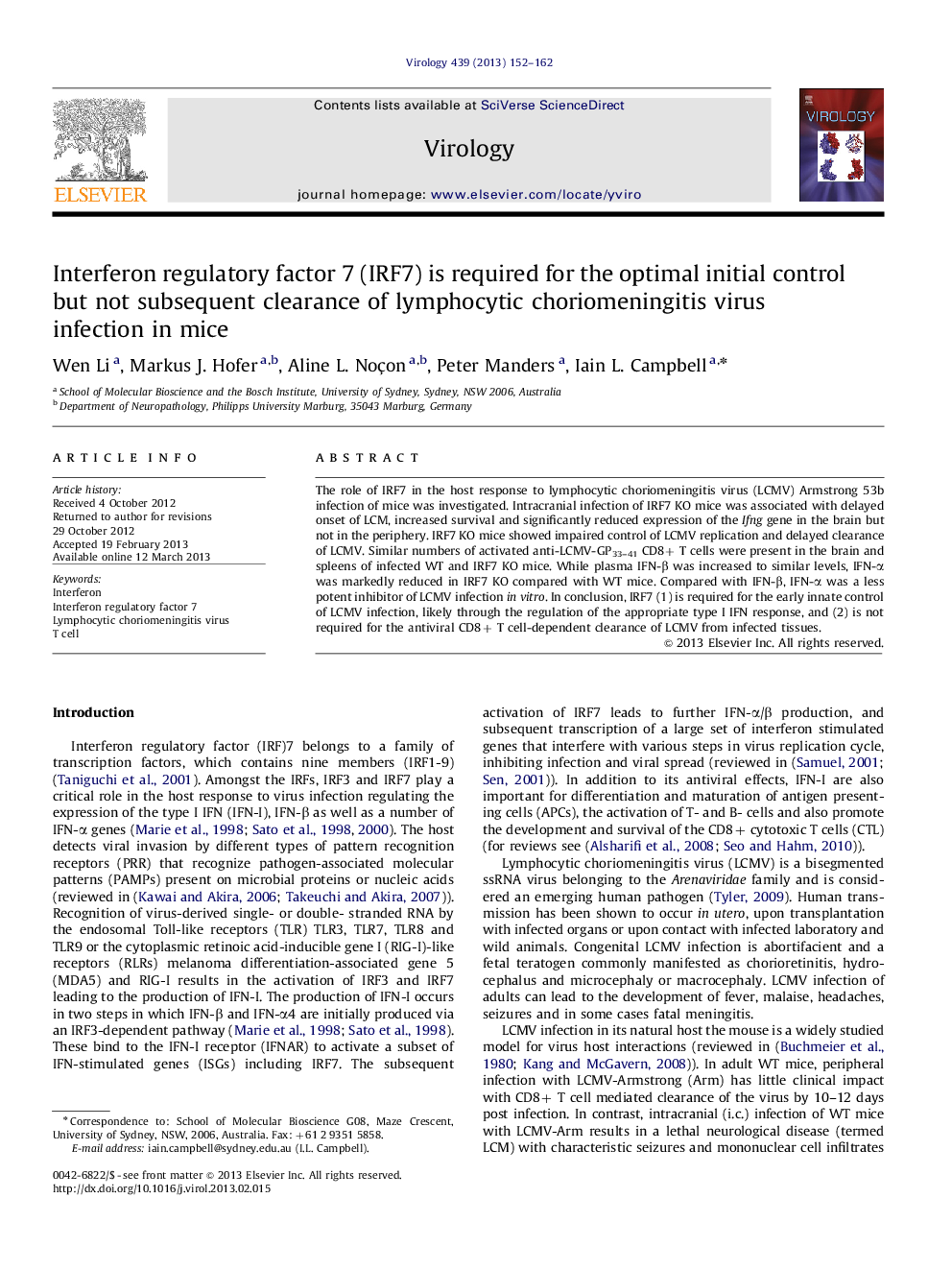| Article ID | Journal | Published Year | Pages | File Type |
|---|---|---|---|---|
| 3424162 | Virology | 2013 | 11 Pages |
The role of IRF7 in the host response to lymphocytic choriomeningitis virus (LCMV) Armstrong 53b infection of mice was investigated. Intracranial infection of IRF7 KO mice was associated with delayed onset of LCM, increased survival and significantly reduced expression of the Ifng gene in the brain but not in the periphery. IRF7 KO mice showed impaired control of LCMV replication and delayed clearance of LCMV. Similar numbers of activated anti-LCMV-GP33–41 CD8+ T cells were present in the brain and spleens of infected WT and IRF7 KO mice. While plasma IFN-β was increased to similar levels, IFN-α was markedly reduced in IRF7 KO compared with WT mice. Compared with IFN-β, IFN-α was a less potent inhibitor of LCMV infection in vitro. In conclusion, IRF7 (1) is required for the early innate control of LCMV infection, likely through the regulation of the appropriate type I IFN response, and (2) is not required for the antiviral CD8+ T cell-dependent clearance of LCMV from infected tissues.
► The role of IRF7 in the host response to LCMV infection of mice was studied. ► IRF7 KO mice were resistant to LCM and had impaired control LCMV replication. ► IRF7 was found to be required for the optimal type I IFN response. ► IFN-β was more effective than IFN-α to inhibit LCMV replication in vitro. ► CD8+ T cell recruitment to the CNS and clearance of LCMV were IRF7-independent.
